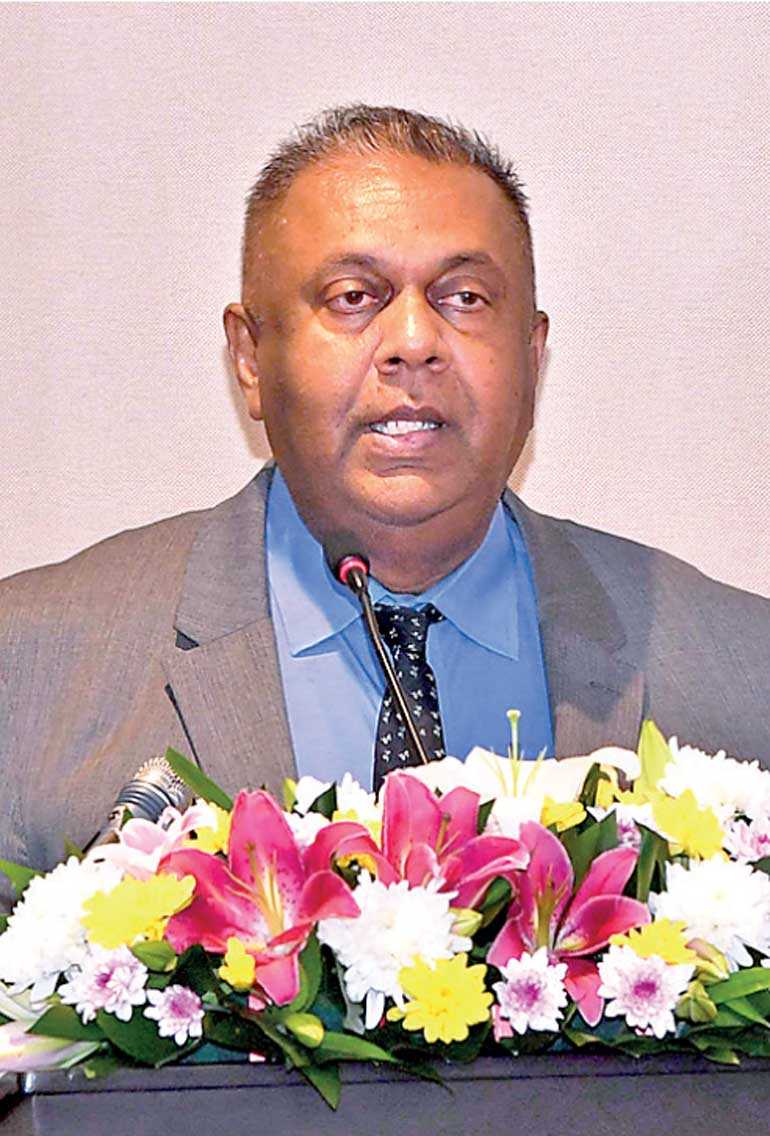Tuesday Feb 24, 2026
Tuesday Feb 24, 2026
Wednesday, 26 September 2018 00:00 - - {{hitsCtrl.values.hits}}
 Finance Minister
Finance Minister
Mangala Samaraweera
In a bid to curtail further rupee depreciation, Finance Minister Mangala Samaraweera yesterday called on people to buy more local products, limiting the importation of luxury items and vehicles. Releasing a statement to the media, the Finance Minister yesterday said that curtailing imports would help in stabilising the economy.
“We cannot say for how long this will go on as it depends on the global economy. But we can now observe that the Sri Lankan rupee, just like the other currencies,is slowly stabilising, especially the Indian rupee, which depreciated by 11%, is now stabilising.
Samaraweera expected the Sri Lankan rupee to stabilise at around Rs. 167-Rs. 168 against the dollar. However, he warned that the global political and economic situation would seriously impact the value of the rupee.
Reading a silver lining in the gloomy economic climate, the Minister said that the situation could be made favourable for the country’s exporters, which can help it work towards creating an export-oriented economy.
“There are people who are benefiting, especially those who are earning in foreign countries. The money sent by them in rupees has increased. Exporters will be able to record a higher income; this has given the push needed for us to transition to an export-based economy,” he said.
Hitting back at the statements made by former president and finance minister Mahinda Rajapaksa, he said that the highest depreciation rate of the rupee was recorded during the Rajapaksa era.
“Let me remind him if he doesn’t remember - in 2012 President and Finance Minister Mahinda Rajapaksa could not prevent rupee depreciation by 14% despite releasing $ 4.1 billion in reserves from the Central Bank. The biggest rupee depreciation recorded in recent Sri Lankan history was during this time,” he said.
During the current situation, which has impacted many countries across the world, India has invested Rs. 40 billion to prevent the fall of its currency, yet the depreciation continued by a large margin, Samaraweera pointed out.
However, the Sri Lankan Central Bank has faced this situation successfully, with the controlled release of foreign reserves.
“We had over $ 8 billion at hand as reserves, but we have to keep this to repay loans taken by the last government,” he explained.
However, the Minister said that the Government was confident of weathering the current global economic crisis without allowing there to be a negative impact on the country’s economic growth.
“This is why we can confidently say that despite the global economic crisis unfolding now, we can manage and take our economy forward,” he said.
Pointing out that the country recorded a surplus in its primary account for the first time since the 1950s, with provisions to increase it during the coming year, the Minister said that the Sri Lankan economy was on a strong footing to face the challenge.
“The highest exports were recorded last year, foreign direct investments were higher last year and inflation has been controlled to a minimum and according to the statistics released recently the growth rate has increased from 3.1% to 3.7% during the last quarter,” he said.
The Minister said that the investments that came to emerging markets such as Sri Lanka, India, Indonesia and the Philippines following the drop in interest rates of the US Federal Reserve following the crisis in the American banking system were now returning to the country causing the current global trend.
“As the American economy booms and interest rates increase, most investors are pulling investments out and taking it back to the US, and the US dollar is strengthening. This issue has impacted not just Sri Lanka but a lot of other markets around the world.The rupee is stabilising at 168.90so there is 9% rupee devaluation. The Indonesian rupiah depreciated by 8.9%, the Korean won by 7% and Philippine currency also depreciated. Countries considered developed such as Australia and Russia also experienced currency depreciation, more than Sri Lanka,” he explained.